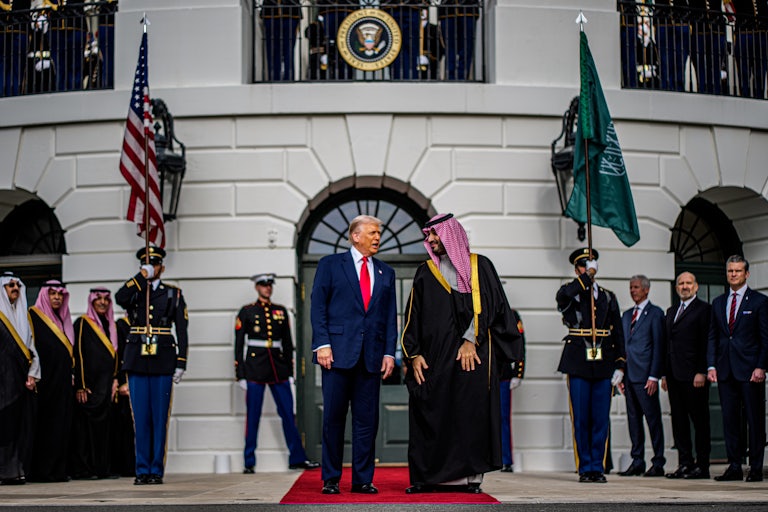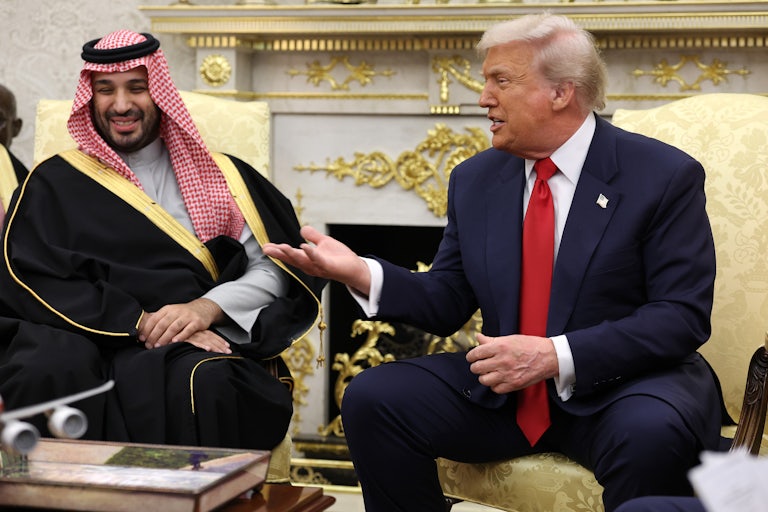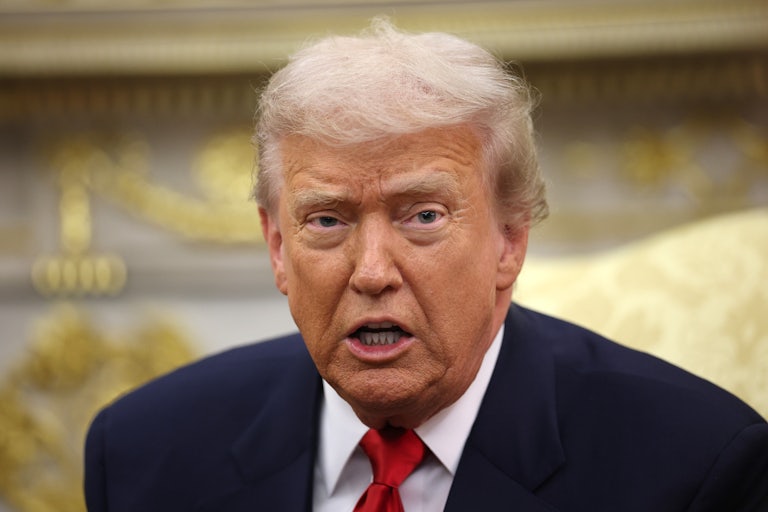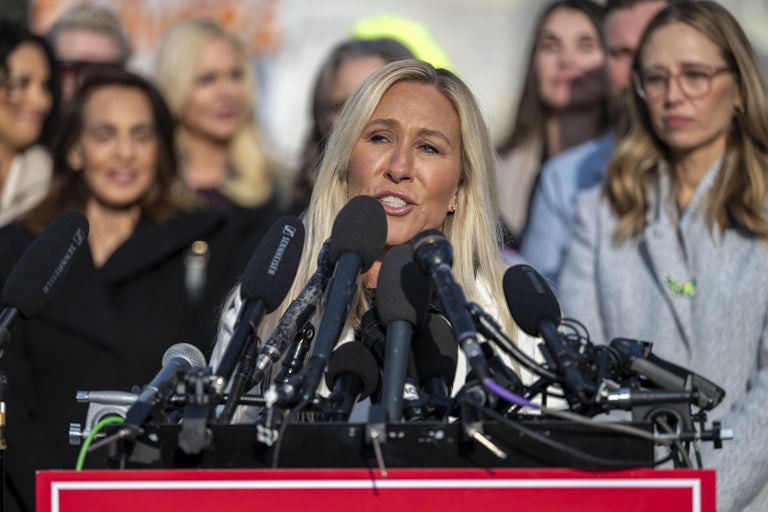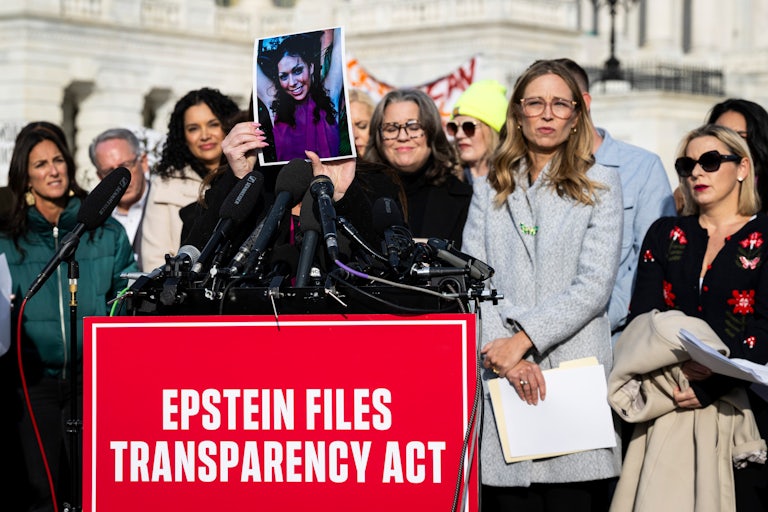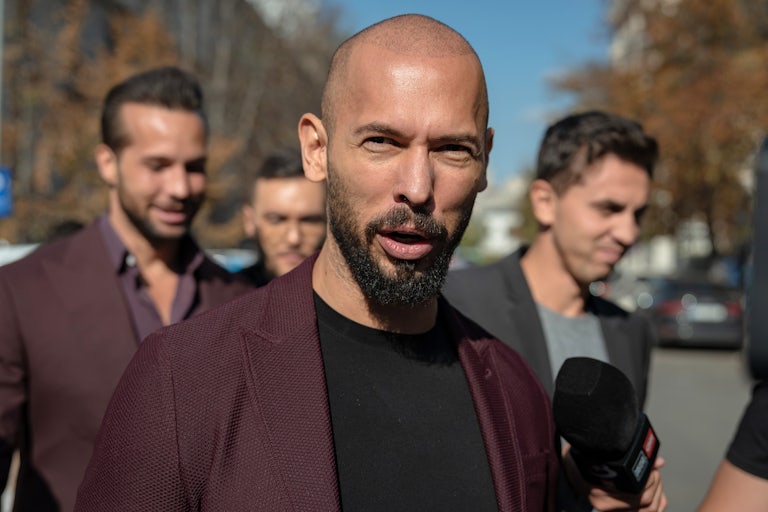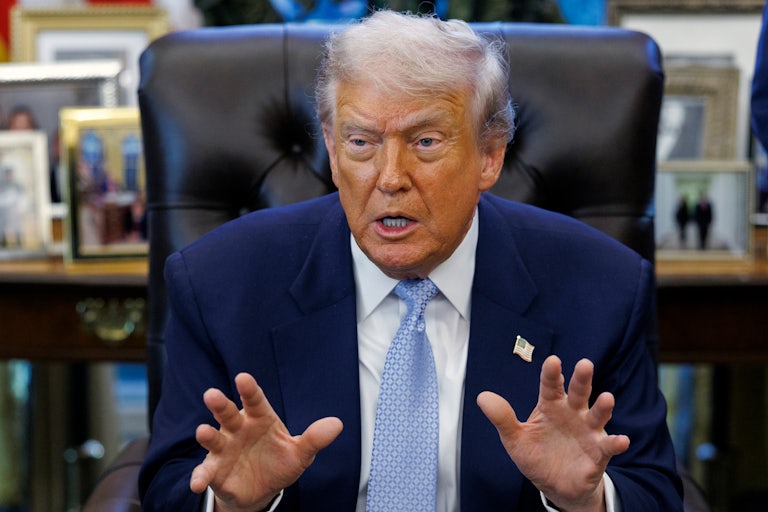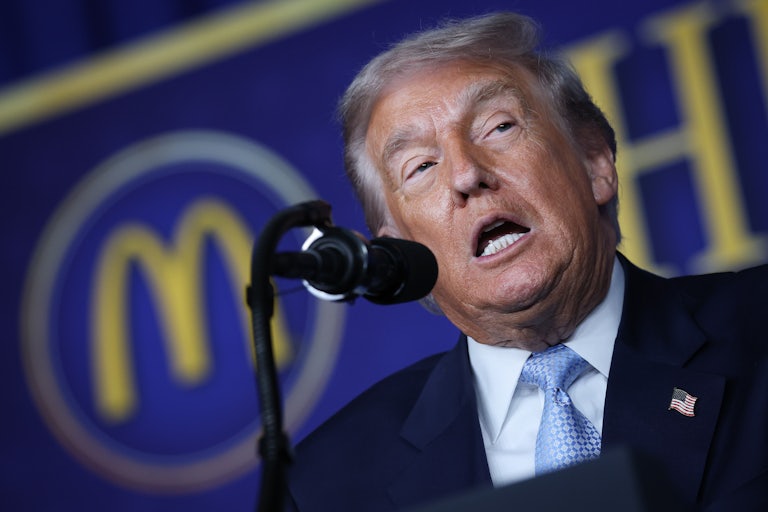Mike Johnson Lets Slip How He Hopes to Block Epstein Files Release
The measure is expected to pass the House, but the Senate could be a different story.
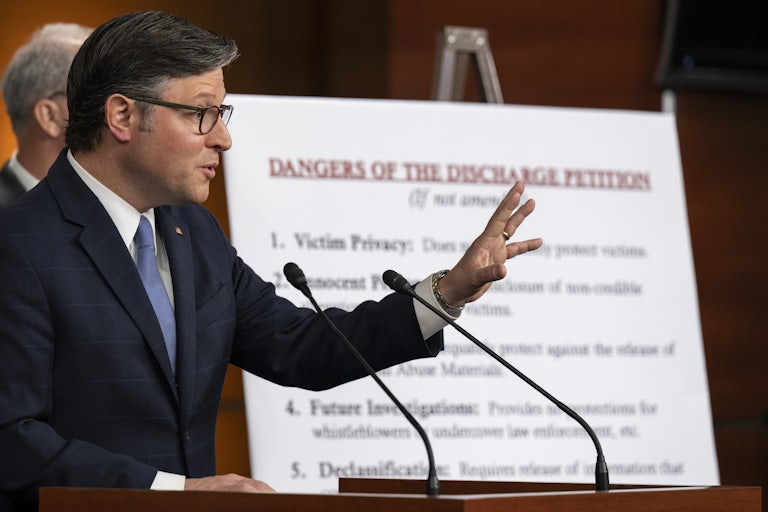
House Speaker Mike Johnson has tapped Senate Majority Leader John Thune to take up the torch of blocking the release of the government’s files on Jeffrey Epstein.
During a press conference Tuesday, Johnson announced that he would support the House petition to release the government’s files on the alleged sex trafficker—but not without throwing one final wrench in the plans of lawmakers who support the measure.
The staunch Donald Trump ally hinted that Republicans would likely attempt to stall the measure in the Senate, saying that he had been in contact with his upper-chamber counterpart to express his lingering concerns about the bill.
“And of course they share those concerns, as well,” Johnson said. “And so I am very confident that when this moves forward in the process, if and when it is processed in the Senate—which is no certainty that that will be—they will take the time methodically to do what we have not been allowed to do in the House: to amend this discharge petition, and to make sure that these protections are there.”
It’s worth noting that if Johnson had simply put this legislation to a vote, instead of requiring lawmakers to seek a discharge petition, he could have potentially amended the bill.
Among supposed concerns about not protecting the identities of victims, or not adequately preventing the release of child sexual abuse materials, Johnson has expressed fears that the release could potentially disclose “non-credible allegations” and risk “creating new victims.”
Representative Thomas Massie, one of the lawmakers behind the petition, said Tuesday Johnson’s so-called concerns were a “red herring” and warned they could simply be another “delay tactic.”
The Kentucky Republican also criticized Johnson’s claim about “non-credible allegations” in a post on X.
“Do not let the Senate add an amendment to avoid disclosing those rich and powerful men who have evaded justice for so many years. Is Johnson calling all victims ‘non-credible?’” Massie wrote.
Johnson’s 180 on the Epstein petition itself isn’t particularly surprising, considering that Trump has also changed his tune, in order to emphasize the convicted sex offender’s ties to Democratic figures. Meanwhile, the Republican Party has fractured over some members’ blatant unwillingness to move forward with the files’ release.
Ahead of the vote, victims rallied for the files’ release, with one calling Trump a “national embarrassment.”
